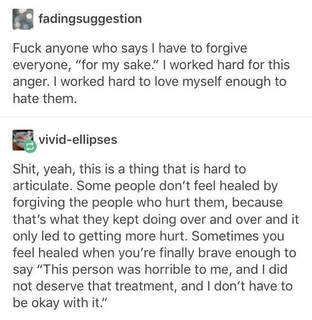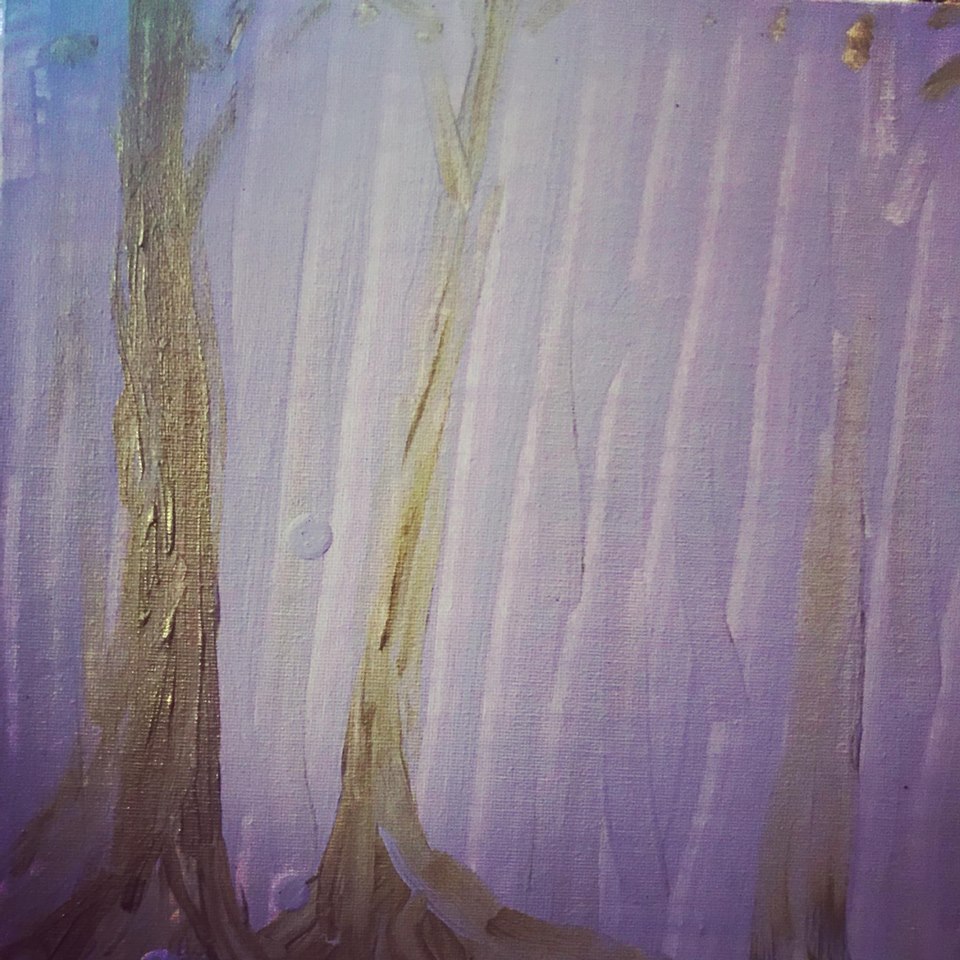 The "meme" I posted yesterday, about forgiveness, has gotten a lot of passionate response, and sits in contrast to exhortations toward forgiveness and non-attachment. The "meme" I posted yesterday, about forgiveness, has gotten a lot of passionate response, and sits in contrast to exhortations toward forgiveness and non-attachment. It seems to me that in this piece by Matthew Remski, about ongoing responses from Shambhala International regarding sexual abuse by its leader Mipham Rinpoche, wherein Remski discusses how “high pressure organizations” respond to revelations of their own abuse by asking members to “deepen their practice” (pray harder, etc.) is the same phenomenon this "meme" (image, left), so clearly fights against. (See more of Remski's writings on the Shambhala abuses, cults, yoga culture, as well as news coverage, including this, and this for background.) Organizations may apply a slightly different kind of pressure/language to the members than families and friends do, language that’s necessarily wound through with their particular dogmas and practices, but the kernel of it, it's meaning and purpose, are the same: Focus on the good in "them"; your ability to focus on the good/ or forgive/go deeper in the practice/family/org is a measure of your spiritual capacity and goodness. That's the very damaging message. This message makes shutting up and shutting down, appearing to be peaceful and accepting a mark of god upon the abused. I am very familiar with this message. In my own work as a trauma therapist, I encounter it frequently. Very often when people first come to therapy they are engaged in feeling bad about themselves because they are “having a hard time forgiving” an abuser, and feel inadequate because of it. Whether it’s the culture they’re in silently pressuring them, or people in their lives responding to their attempts to reach out for support, “Have you forgiven him?” or “You’ll feel better if you forgive him,” are common responses. This is so incredibly damaging. It shuts down the protective life energy the person is needing in order to get out, stop blaming themselves, and recover. In my own life history, I have encountered it many times, inside yoga and spiritual communities (including Christian churches or church people), family, and even work places. Having processed much of this in my own therapy, I can say without doubt that feeling as if my spiritual well being could be measured by my ability to see the “true heart and core” or a person underneath the “illusory phenomenon on their conditioned behavior” kept me in an abusive relationship, and constantly working on myself in the belief that if I could just achieve non-attachment or a high enough spiritual something-or-another their abuse wouldn’t affect me any more. As a therapist, people do present to therapy asking me to help them get into some kind of a state that will make them immune to the abusive person they’re involved with, truly believing that such is a worthy and healthy goal. It’s not. And I cannot ethically undertake such a project. In all instances these exhortations to "forgive," "deepen," "practice non-attachment," etc. appear to have one purpose, and that is the comfort and/or continued existence of the one pressuring the hurt person, whether it’s the abuser themselves or a family or org in the aftermath of a revelation. It is far easier for families and orgs to carry on as if nothing has happened if the one coming forward about abuse can carry on as is nothing has happened, as other members may maintain their relationships with the abuser (with less or no guilt or internal conflict), or, if they abuser has been banished, they can be resolved of responsibility and get back to homeostasis. Or the illusion of homeostasis -- things never can be as they were, and it’s better to consciously work with that than to try to pretend/ For orgs, their profit and profile in the world depends on the apparent loyalty and participation of members, so the motivations for pressuring people to "forgive" -- whatever language it’s framed in -- are obvious. In the case of Shambala, as Remski says in the article below, the most recent pressures to conform/forgive/not notice/”deepen” have included: “Our confusion and pain might drive us more deeply into practice,” Judith Simmer-Brown, Shambhala International teacher in a broadcasted talk on August 4 addressing the community post-abuse revelations. And reminders of the “Four Reliances” (from some Buddhist texts as old as the first century CE): 1. Do not rely on the personality or individuality of the teacher. Rely on the Dharma teachings themselves. 2. Do not rely on the literal words. Rely on the meaning of the teachings. 3. Do not rely on merely provisional teachings. Rely on the definitive or ultimate teachings. 4. Do not rely on conceptual mind. Rely on the nondual wisdom of experience. To be clear, I'm not disparaging Buddhism here. Or any other spiritual philosophy, on its face. I'm pointing out how tenets can be used to silence and abuse members, and how that leaks out into the wider world and does harm. In addition, Remski notes that the talk and response from Shambhala International is, in its use of the concept of “resilience,” is “Appropriating a popular concept from trauma-recovery discourse, Simmer-Brown explained that her talk would offer “foundational things that we need to know in order to be resilient practitioners.”” And this leads to my closing point, that “resilience” is being misused right now, and used as a platform for judgment, and even for control, as in this Shambala instance. Resilience doesn’t mean not responding to events and phenomena. It doesn’t mean silence and compliance in the face of danger. Once an org or family or friend group has shown itself to be complicit in abuse, for whatever reason, they have shown themselves to be dangerous. If they truly want to change, to wake up, to be responsive toward protection and away from innaction and concealment, they THEY have to do the work -- not the person(s) who suffered they abuse. *Non-attachment, or, specifically, "attachment" is used here in the way it's taught in Buddhist teachings -- or mis-taught -- and not as the psychological/developmental term.
0 Comments
Mothers bear the brunt of patriarchal cultures’ angst. Everything is projected onto them. Everything is withheld from them. Abusive or ineffective fathers and uncles and “leaders” are chosen for the boon of loyalty, for their power and their fun times and their resources, called “strong” because they kill instead of cry. Mothers are given the blame and the pain and ill treatment, the restrictive laws, harassment, near impossibility of justice when assaulted, and the poverty and the abandonment. What men get away with and what women are punished for is so unbalanced, so misdirected both consciously and unconsciously, sometimes it’s a wonder any women are surviving at all. We’ll know we’re exiting the patriarchal period when mothers are treated decently, and blame begins to dissipate and diffuse into the vast landscape of responsibility, where it belongs. Until we do, so much is lost.
|
Margaret Howard, MFA, LCSWDepth somatics psychotherapist, regenerative gardener, writer, elder, explorer. Essays
All
Archives
May 2023
|
